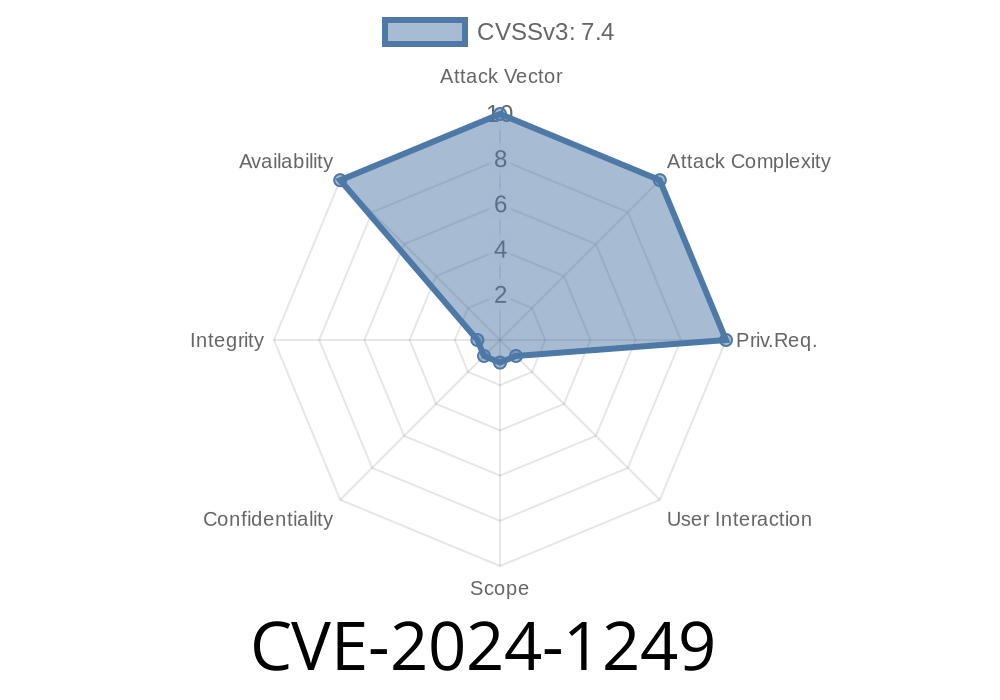Keycloak, the popular open-source identity and access management tool, is widely used to secure web applications. In early 2024, a security flaw tagged CVE-2024-1249 was uncovered in Keycloak’s OpenID Connect (OIDC) component, specifically in the way it handles the “checkLoginIframe.” This flaw is simple, yet dangerous—it lets attackers abuse cross-origin messages without validation, leading to possible DDoS (Distributed Denial of Service) attacks on affected web applications.
In this deep-dive, we’ll break down what happened, how it can be misused, and what you can do to stay safe.
What is checkLoginIframe and Why Does it Matter?
Keycloak’s OIDC support offers a feature called "checkLoginIframe." This is a background iframe periodically sending silent requests to check if the user login session is still valid, making seamless authentication possible for single-page applications (SPAs).
Technically, it works by embedding an invisible iframe from the Keycloak server. The parent page and iframe communicate using the window.postMessage API to maintain login status.
Snippet: Typical Usage
window.addEventListener("message", receiveMessage, false);
function receiveMessage(event) {
if (event.origin !== "https://your-keycloak-domain.com";) {
// Should validate the origin here
return;
}
// Handle messages
}
The Problem: Unvalidated Cross-Origin Messages
CVE-2024-1249 points to a missing step: origin validation for incoming messages. By default, browsers allow any iframe or page (even from different domains) to send postMessages.
When Keycloak’s JavaScript client receives a message in checkLoginIframe, it did not check if the message came from Keycloak itself. Attackers can easily craft code on their own site to send tons of requests, overwhelming the target application or tricking it into unintended behaviors.
Reference:
- Keycloak Advisory (KEYCLOAK-23256)
- NVD Entry for CVE-2024-1249
- Keycloak Issue Tracker
Exploit Example: How an Attacker Can Weaponize the Bug
Let's look at how trivial it can be to exploit this bug. Imagine an attacker sets up a page on another domain. With just a few lines of code, they can spam the vulnerable Keycloak client with millions of cross-origin messages per second.
Exploit Code Snippet
// Attacker's site script
const targetOrigin = "https://victim-app.com";; // Target application using Keycloak
function spamCheckLoginIframe() {
setInterval(() => {
window.parent.postMessage({ type: "kc-iframe-message", data: "attack" }, targetOrigin);
}, 1); // Sends 100 messages per second
}
spamCheckLoginIframe();
If multiple computers visit or are tricked into visiting this page (for instance, through phishing), the attack multiplies, resulting in millions of requests each second. This can saturate the target server or trigger errors that disrupt the user’s session.
What Should Be Done? (And How to Patch)
The fix is simple: ALWAYS validate the message origin before processing any content from postMessage.
Example: Secure Message Handler
const keycloakOrigin = "https://your-keycloak-domain.com";;
window.addEventListener("message", function(event) {
if (event.origin !== keycloakOrigin) {
// Ignore messages from untrusted origins
return;
}
// Process trusted messages only
}, false);
After the fix: Only messages from the expected Keycloak server are accepted, closing off this attack vector.
Reported: Feb 2024
- Fixed in Keycloak: Keycloak 24..2 and 23..6
- CVE Details: CVE-2024-1249 on NVD
- Keycloak Official Advisory: https://github.com/keycloak/keycloak/security/advisories/GHSA-vh9w-rxrq-m426
Conclusion
CVE-2024-1249 shows how a small oversight—forgetting to check the origin of messages—can have big consequences. Any web app using an insecure version of Keycloak for authentication through checkLoginIframe is vulnerable to high-volume, cross-origin abuse.
Stay alert, and always code with security in mind!
_For more official info, see the full advisory:_
https://github.com/keycloak/keycloak/security/advisories/GHSA-vh9w-rxrq-m426
Timeline
Published on: 04/17/2024 14:15:08 UTC
Last modified on: 04/17/2024 16:15:07 UTC
